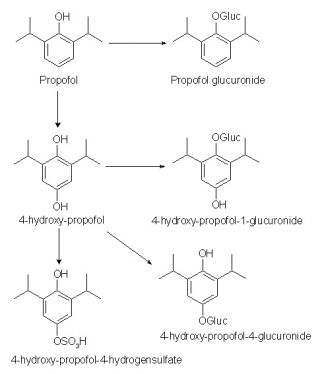Addiction
Murder by Propofol
A look at three homicidal deaths involving propofol, including Michael Jackson's
Posted May 19, 2013

I’ve found myself researching the drug propofol of late, in part because of the high-profile Michael Jackson case, and partly because my dog Georgie Girl will be given the sedative to help put her under for surgery (along with an inhalant gas anesthetic). She has a toxic-shock reaction to standard anesthetics, and these are the alternatives.
Propofol, as it turns out, has been used in lethal doses in one known homicide case in Florida, another in Alabama, and in the heavily publicized death of Jackson.
I first heard about propofol in 2009 in the aftermath of the King of Pop’s death. It’s the powerful drug that was administered in a lethal dose intravenously by Conrad Murray, a private doctor to Jackson. Propofol has been referred to as "milk of amnesia" because of its milk-like appearance. Its use in Jackson’s home as a sleep aid instead of in a monitored clinical setting resulted in an involuntary manslaughter conviction against Murray in November 2011.
The drug is in the news once again relating to Jackson’s death because the singer’s family is in the middle of a civil case of wrongful death against Murray.
The rapid effect of propofol makes it an unusual choice for abuse, Dr. Jeff Guy of Vanderbilt University told ABC News, adding that such a situation would represent "a quantum leap in the issue of substance abuse."
But that unusual choice didn’t stop a nurse in Alabama and another in Florida from administering it in the commission of crimes.
In fact, the 2005 case is one of the first documented homicides by propofol after a 24-year-old Gainesville, Florida woman was found dead in her home from apparent propofol toxicity. Michelle Herndon had had no known drug abuse in the past, according to her autopsy findings. Once the medical examiner determined the manner of death was probable homicide, investigators then focused on Olivier O'Quinn.
O’Quinn was a male registered nurse who had obtained propofol and other drugs through his work in a surgical intensive care unit. In 2008, O’Quinn was convicted of murder. His case marked the first time someone had been tried for murder from using the hospital sedative.
In 2008, a second homicide from propofol occurred, this one in Alabama, when Billy Shaw died from what was initially believed to be a heart attack. A year later, however, after his body was exhumed, toxicology results revealed a high concentration of propofol – enough to kill him -- in his blood stream at the time of his death.
Prosecutors contended that 32-year-old Karri Denise Willoughby, Shaw's stepdaughter, had siphoned money from the bank accounts of her stepfather, plus she stole her mother’s identity for financial gain. When the theft was discovered, Willoughby’s access to the accounts was cut off. Being cut off from the money, prosecutors say, was Willoughby’s motive for killing Shaw. Willoughby, who was a registered nurse, was arrested and charged with capital murder.
Dr. Steven Shafer, the same prosecution expert used in the Jackson criminal case, was on the witness list and set to testify for the prosecution during Willoughby’s trial, attesting that propofol was not self-administered by her stepfather. But just before Willoughby’s trial was to begin in 2012, she pleaded guilty to a lesser murder offense and was sentenced to 20 years in prison.
What’s noteworthy is that homicidal use of propofol is so rare that it has not been classified as a controlled substance – at least not yet. That means if someone is caught with vials of propofol, it’s not a crime.
Back on the home front, my veterinarian assures me that propofol, when administered properly in a controlled clinical environment, is safe and that my dog should be fine. I’m counting on that.
Follow me on Twitter at @CathyScott.


